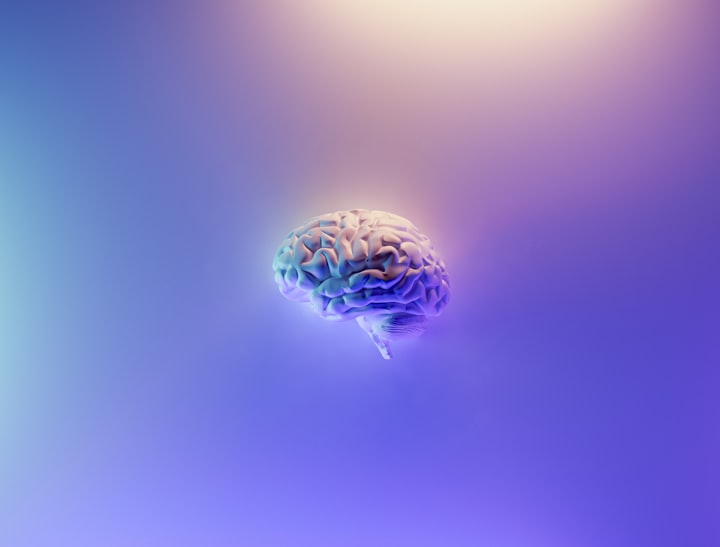Understanding Cognitive Biases: Unveiling the Patterns of Irrational Thinking
Exploring the Hidden Influences on Our Decision-Making Process

Introduction:
In our daily lives, we encounter countless situations that require us to make decisions. From simple choices like what to wear to complex matters like career decisions, our minds are constantly at work. However, have you ever wondered why we sometimes make irrational decisions or fall into certain thinking patterns that defy logic? The answer lies in cognitive biases, which are innate tendencies that affect our judgment and decision-making processes. In this article, we will explore the fascinating world of cognitive biases, uncovering their impact on our thoughts, behaviors, and overall perception of reality.
1. The Nature of Cognitive Biases:
Begin by explaining what cognitive biases are and how they are formed. Discuss the evolutionary purpose of biases and their role in simplifying our decision-making process. Emphasize that while biases can be helpful in certain situations, they can also lead to irrational thinking and flawed judgment.
2. Common Types of Cognitive Biases:
Explore some of the most prevalent cognitive biases that humans experience. Discuss biases such as confirmation bias, where we seek information that confirms our existing beliefs, and availability bias, where we rely on easily accessible information rather than considering a broader range of options. Explain how these biases can distort our perception of reality and hinder objective decision-making.
3. The Impact of Cognitive Biases:
Delve into the consequences of cognitive biases on our daily lives. Discuss how biases can affect our personal relationships, professional endeavors, and even our overall well-being. Explore how biases can lead to poor judgment, flawed reasoning, and missed opportunities for growth and learning.
4. Overcoming Cognitive Biases:
Provide practical strategies and techniques to help individuals mitigate the effects of cognitive biases. Encourage self-awareness and mindfulness to recognize when biases may be at play. Discuss the importance of seeking diverse perspectives, questioning assumptions, and engaging in critical thinking to challenge biases and promote objective decision-making.
5. The Role of Education and Awareness:
Highlight the importance of educating individuals about cognitive biases and their impact. Discuss how increased awareness can empower individuals to recognize biases in themselves and others, fostering a more open-minded and rational approach to decision-making. Explore the potential benefits of incorporating bias awareness programs in educational curricula and workplace environments.
6. Applying Cognitive Bias Knowledge in Everyday Life:
Provide practical examples of how individuals can apply their understanding of cognitive biases to improve decision-making. Discuss how individuals can actively seek out alternative viewpoints, engage in evidence-based reasoning, and use tools like decision matrices and cost-benefit analyses to make more informed choices.
7. The Influence of Cognitive Biases in Marketing and Advertising:
Discuss how cognitive biases are leveraged in marketing and advertising to influence consumer behavior. Explore examples of how biases like scarcity effect, social proof, and anchoring can be used to sway decision-making and create a sense of urgency or desire for a product or service.
8. The Connection Between Cognitive Biases and Emotional Intelligence:
Explain how emotional intelligence plays a role in recognizing and managing cognitive biases. Discuss how individuals with higher emotional intelligence are better equipped to regulate their emotions and make more rational decisions, as they are more aware of their biases and can separate their emotions from the decision-making process.
9. The Role of Cognitive Biases in Personal Relationships:
Examine how cognitive biases can impact personal relationships and interactions. Discuss biases such as the halo effect, where one positive trait influences our perception of an individual as a whole, and the fundamental attribution error, where we attribute others' actions to their character rather than considering situational factors. Highlight the importance of recognizing and challenging these biases to foster healthier and more empathetic relationships.
10. Cultural and Contextual Influences on Cognitive Biases:
Explore how cultural and contextual factors can shape cognitive biases. Discuss how societal norms, values, and beliefs can influence the formation and manifestation of biases. Explore cross-cultural differences in biases and how cultural awareness can help us challenge our own biases and develop a more nuanced understanding of others' perspectives.
11. Cognitive Biases in Decision-Making Under Uncertainty:
Examine how cognitive biases come into play when making decisions in uncertain or ambiguous situations. Discuss biases such as the ambiguity effect, where we tend to prefer known risks over uncertain outcomes, and the framing effect, where the presentation of information influences our decision-making. Discuss strategies for making more objective decisions in uncertain scenarios.
12. Cognitive Biases and Mental Health:
Explore the relationship between cognitive biases and mental health conditions such as anxiety and depression. Discuss how biases like catastrophizing, overgeneralization, and emotional reasoning can contribute to negative thinking patterns and reinforce mental health challenges. Highlight the importance of cognitive restructuring techniques in therapy to challenge and reframe biased thinking.
13. The Ethical Implications of Cognitive Biases:
Discuss the ethical considerations surrounding the use of cognitive biases in various contexts. Explore the potential for exploitation and manipulation when biases are exploited for personal or corporate gain. Discuss the responsibility of individuals, organizations, and policymakers in raising awareness and creating ethical frameworks to minimize the negative impact of biases.
14. The Intersection of Cognitive Biases and Artificial Intelligence:
Examine how cognitive biases can manifest in artificial intelligence algorithms and systems. Discuss the potential for biases to be perpetuated and amplified in automated decision-making processes and the ethical challenges this presents. Highlight the importance of designing AI systems that are aware of and address biases to ensure fair and unbiased outcomes.
15. The Evolutionary Origins of Cognitive Biases:
Provide a brief exploration of the evolutionary origins of cognitive biases. Discuss how biases may have served survival purposes in our evolutionary past but can now hinder our decision-making in complex modern societies. Highlight the importance of being aware of these biases to navigate the challenges of the contemporary world effectively.
Conclusion:
Understanding cognitive biases is crucial for developing self-awareness and making more rational and informed decisions. By recognizing and challenging our biases, we can enhance our critical thinking skills, improve our relationships, and navigate the complexities of the world with greater clarity. By promoting awareness of cognitive biases and providing individuals with strategies to mitigate their effects, we can foster a more rational and objective society that embraces diverse perspectives and values evidence-based decision-making.
About the Creator
Lomat Al Noor
My goal is to captivate readers and provide them with valuable insights and knowledge. I am dedicated to delivering content that informs, inspires, and entertains.






Comments
There are no comments for this story
Be the first to respond and start the conversation.